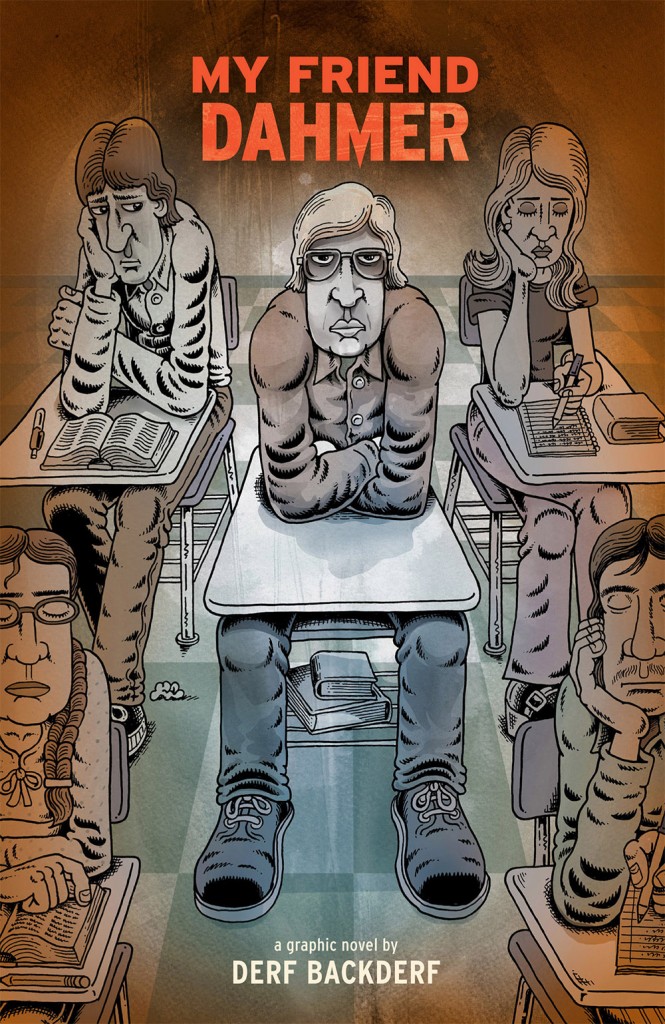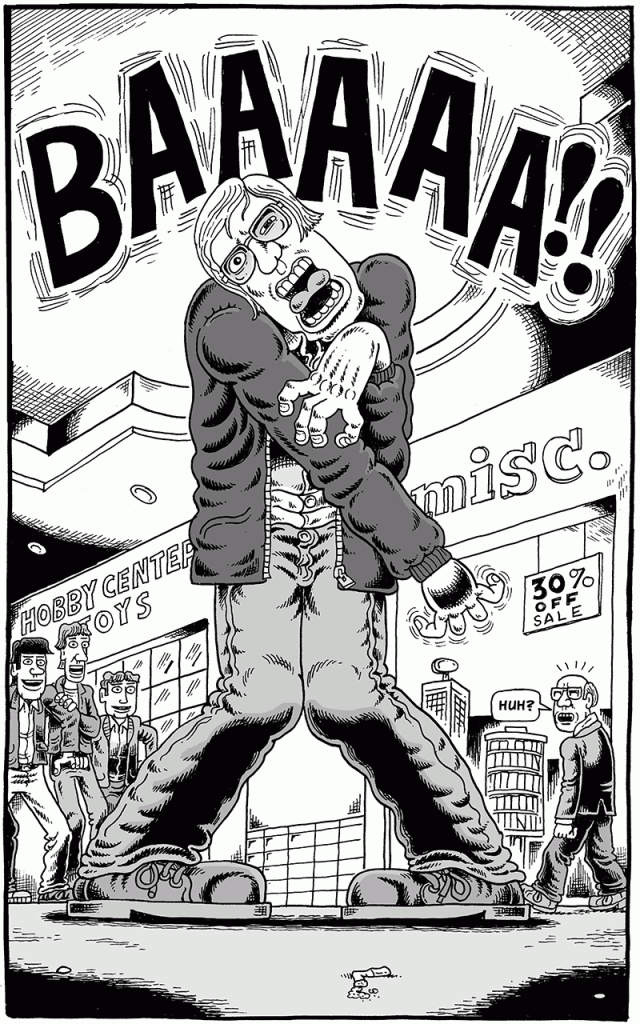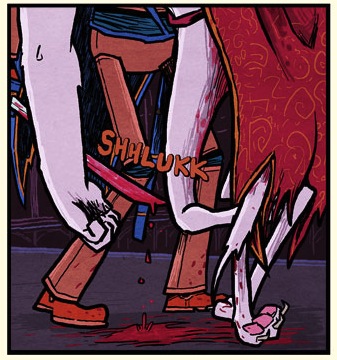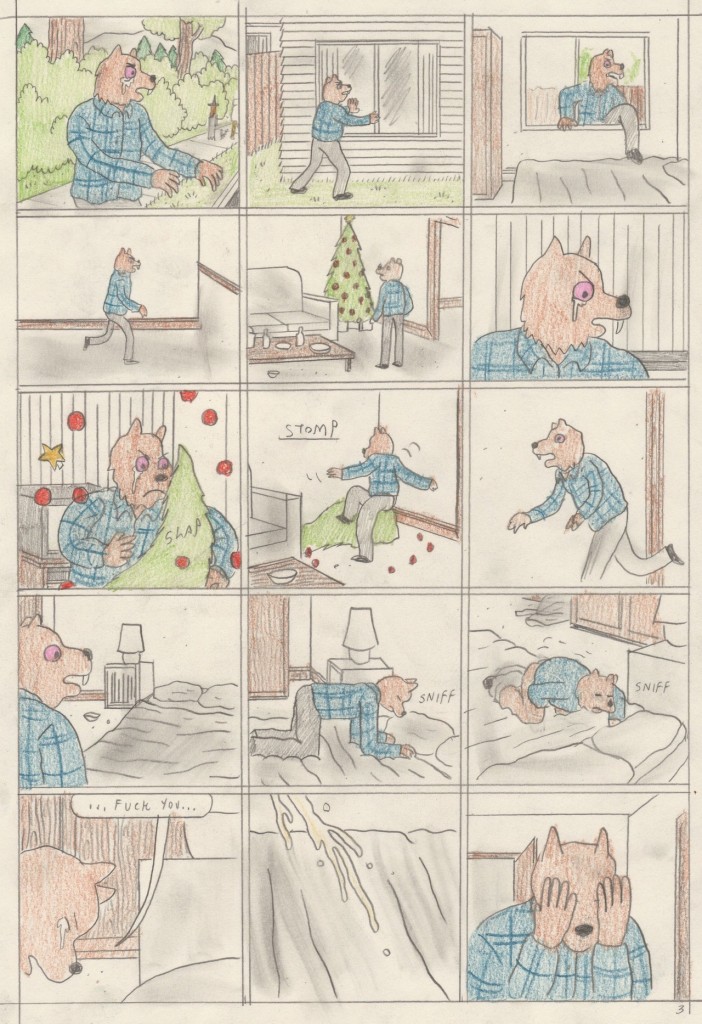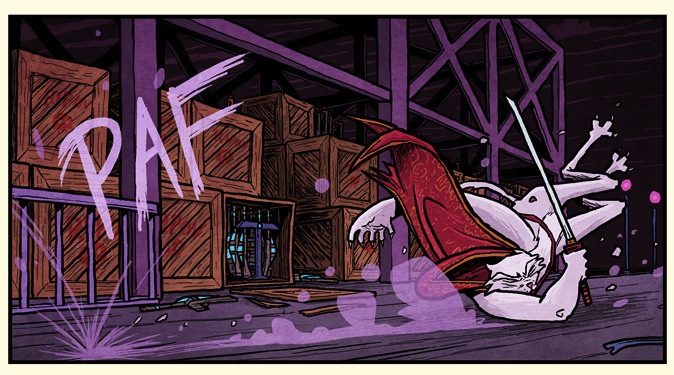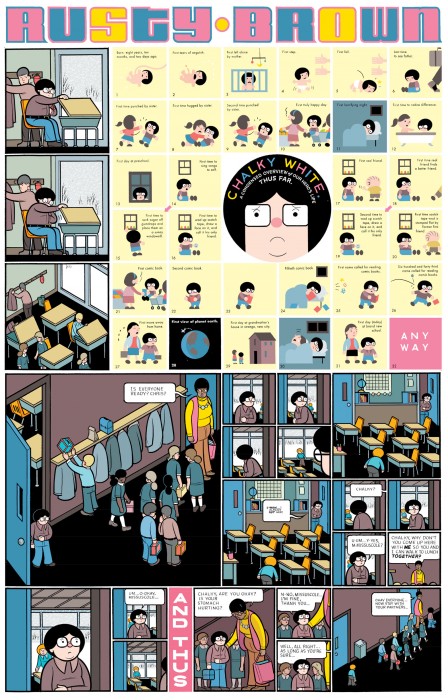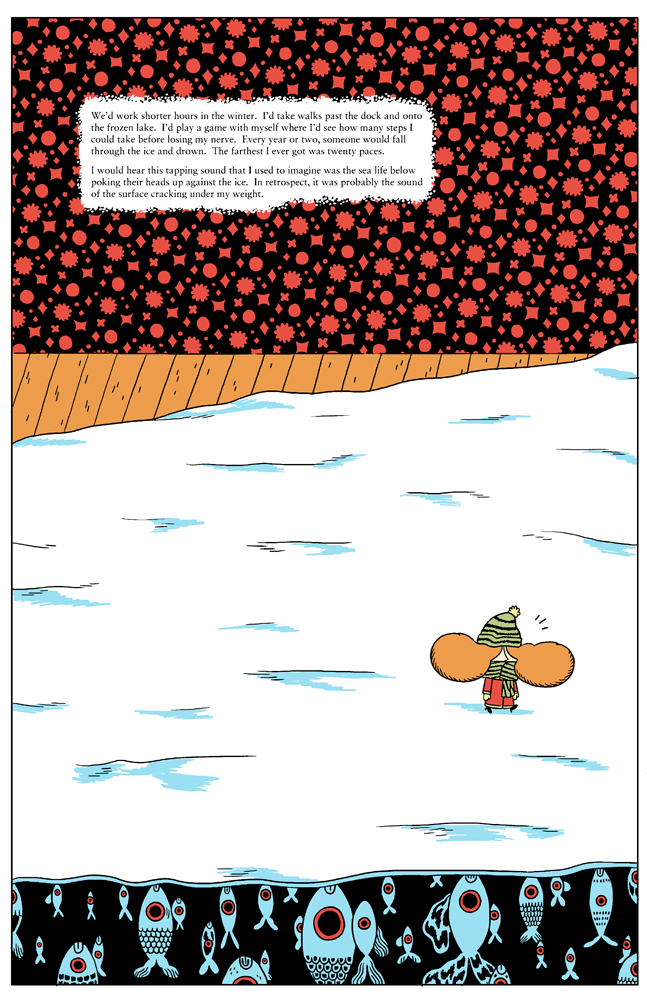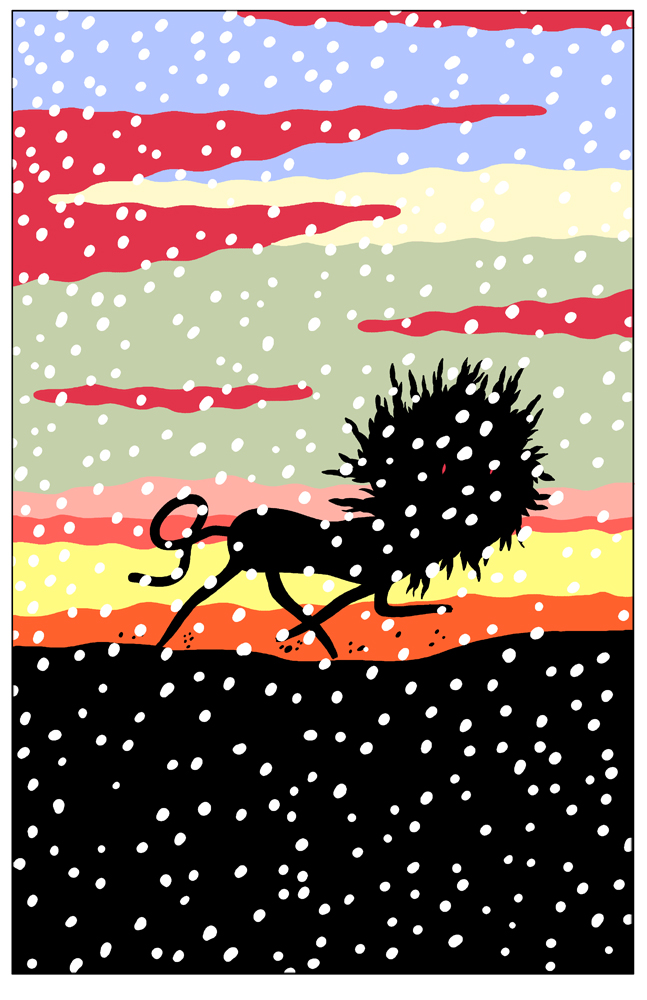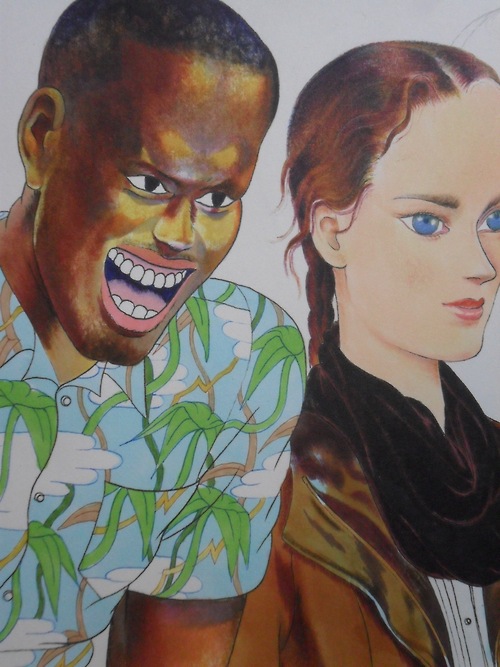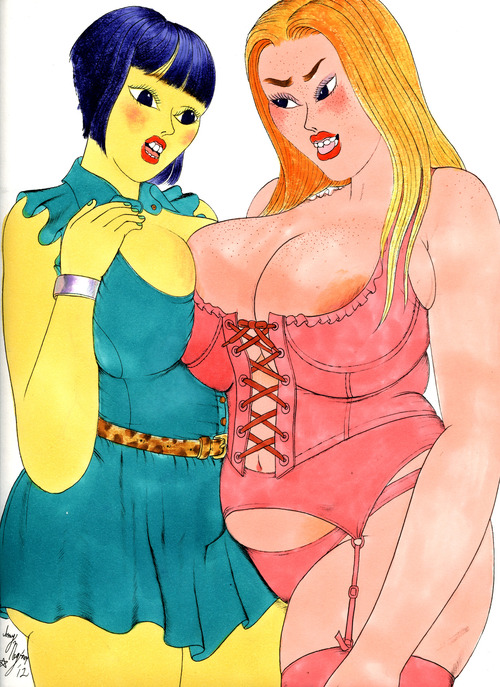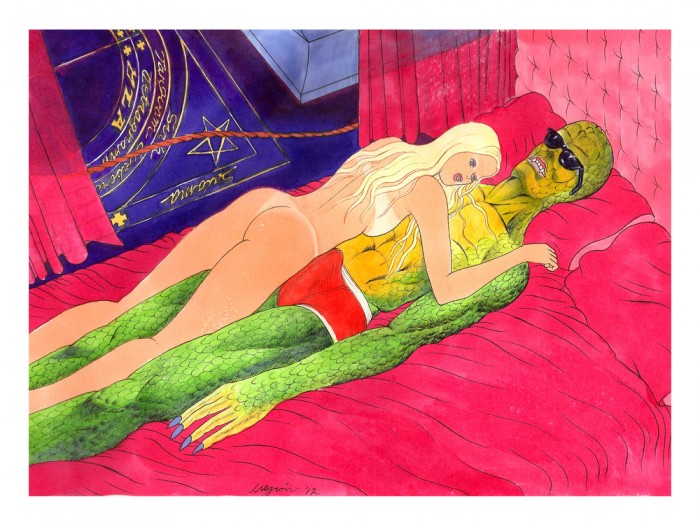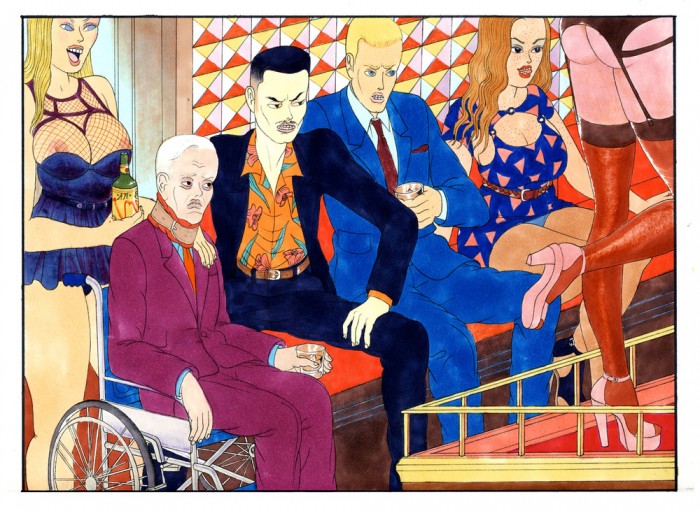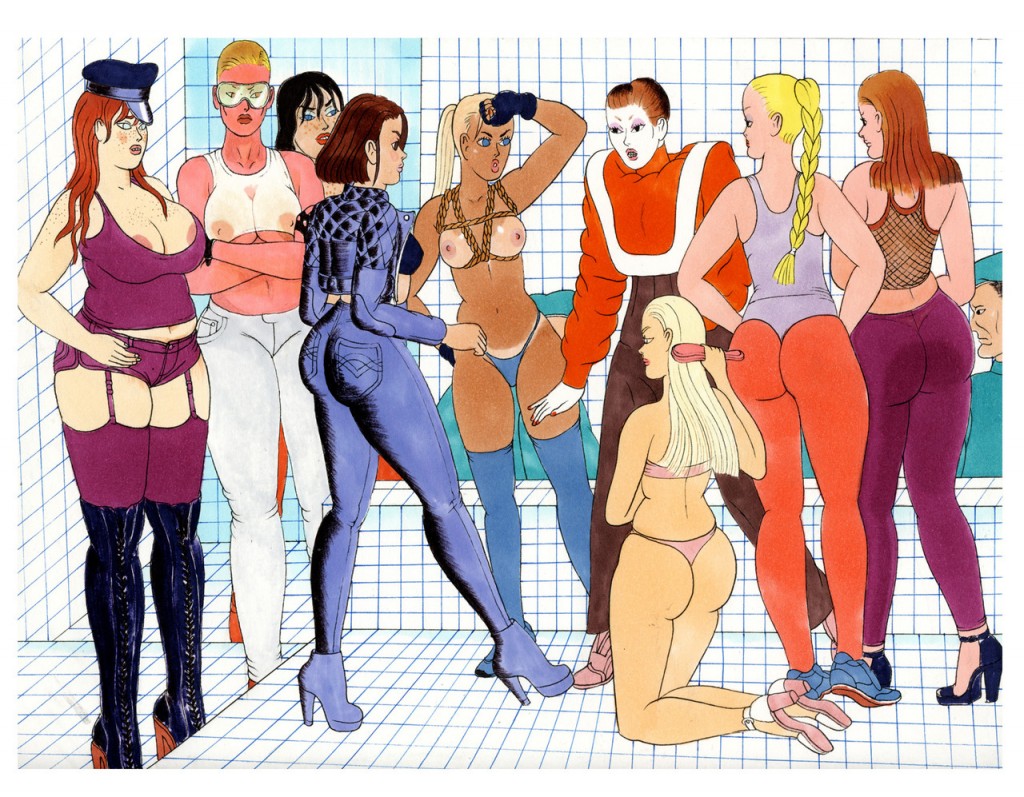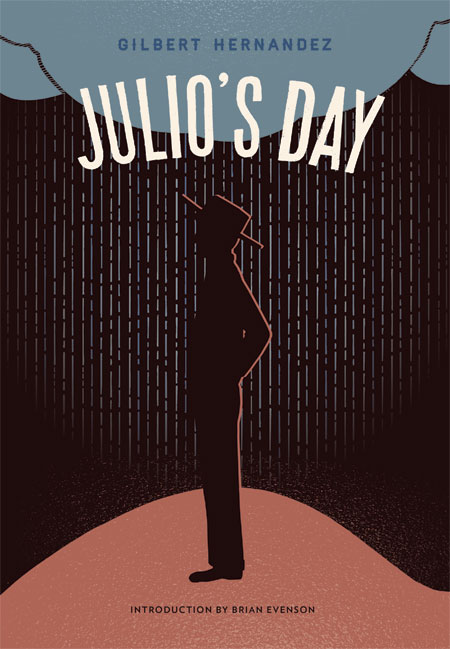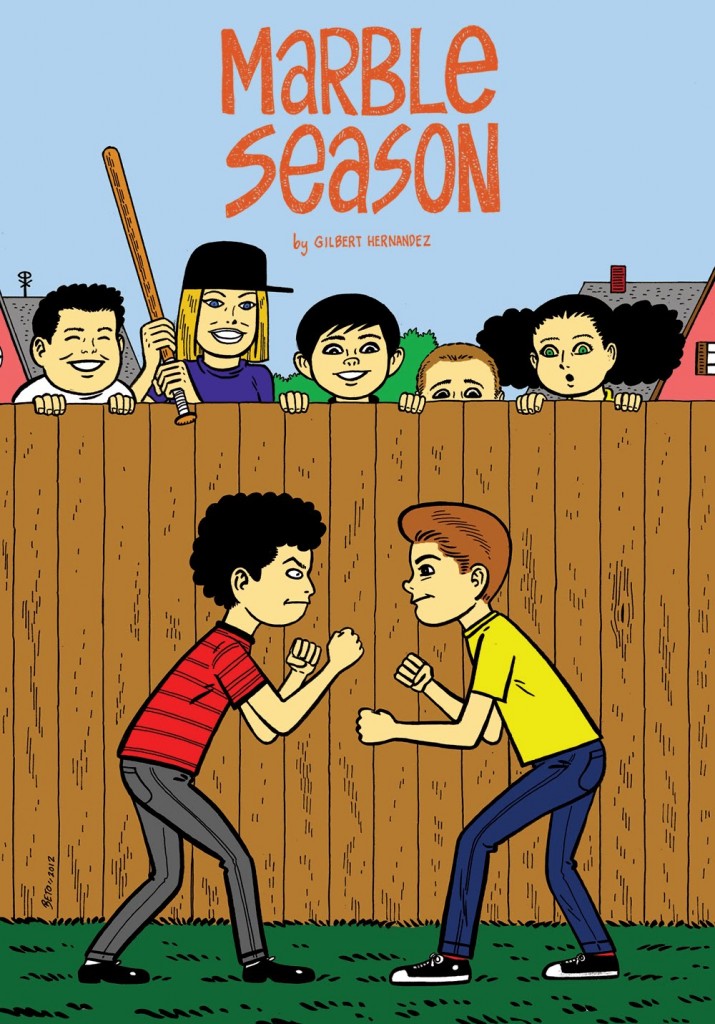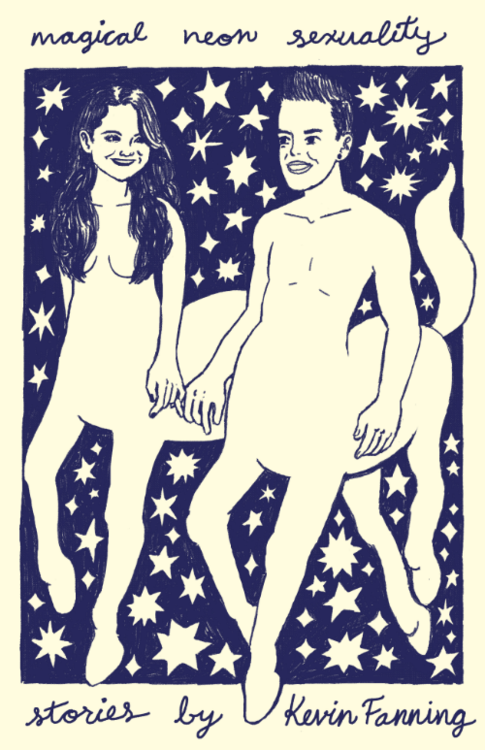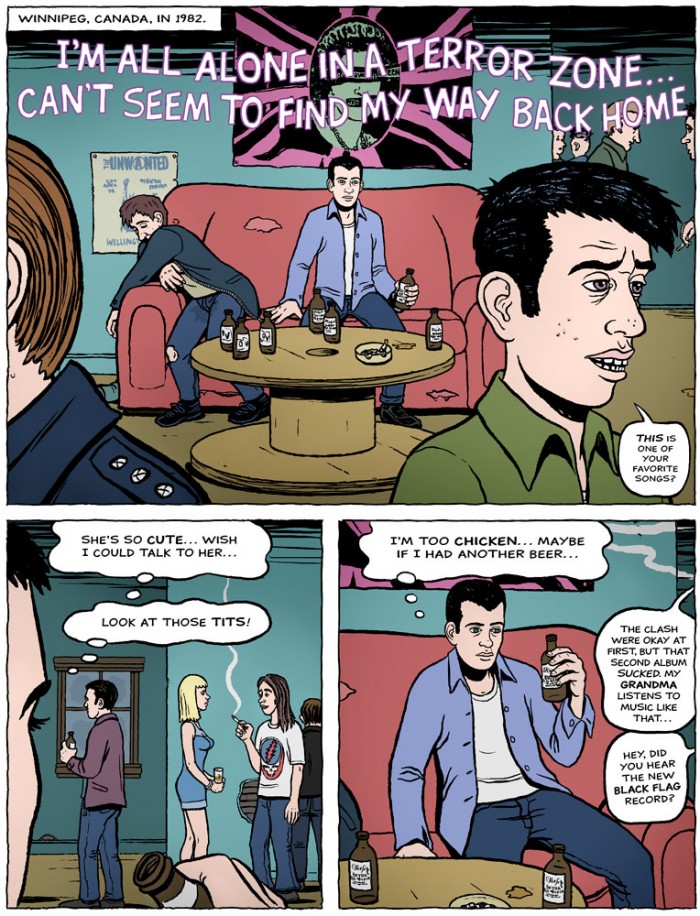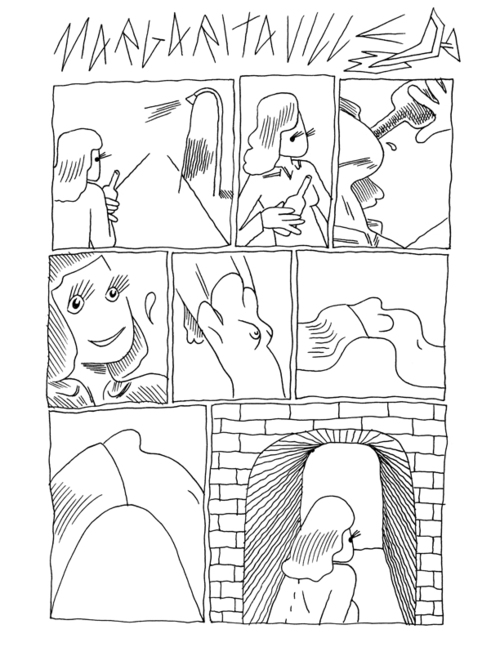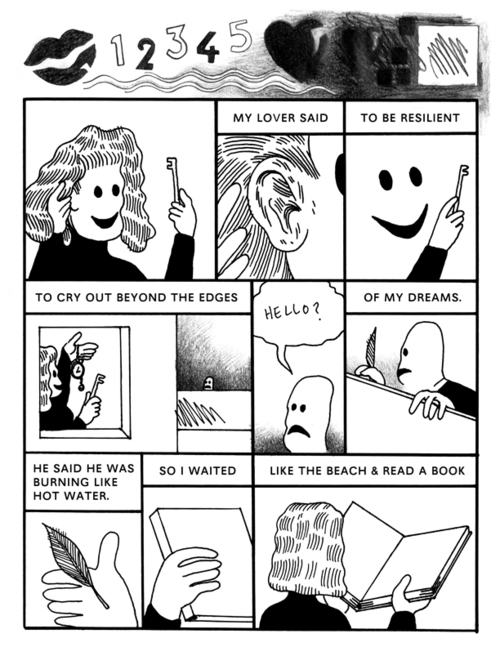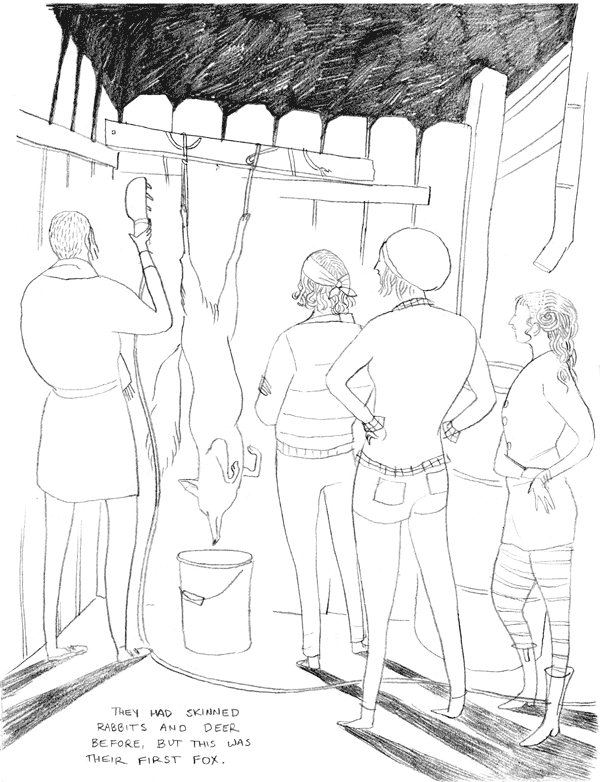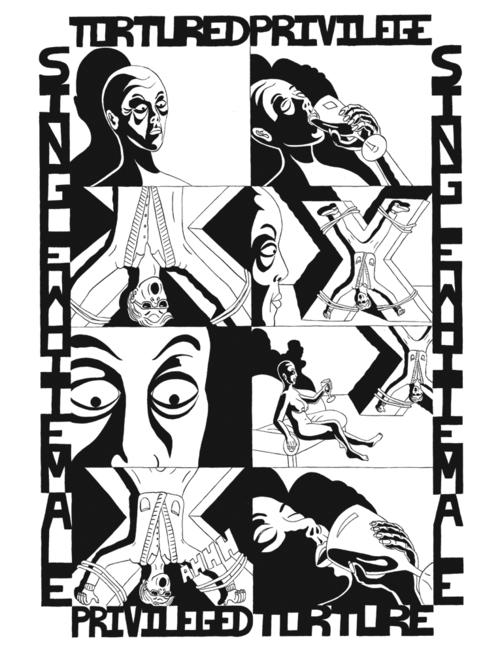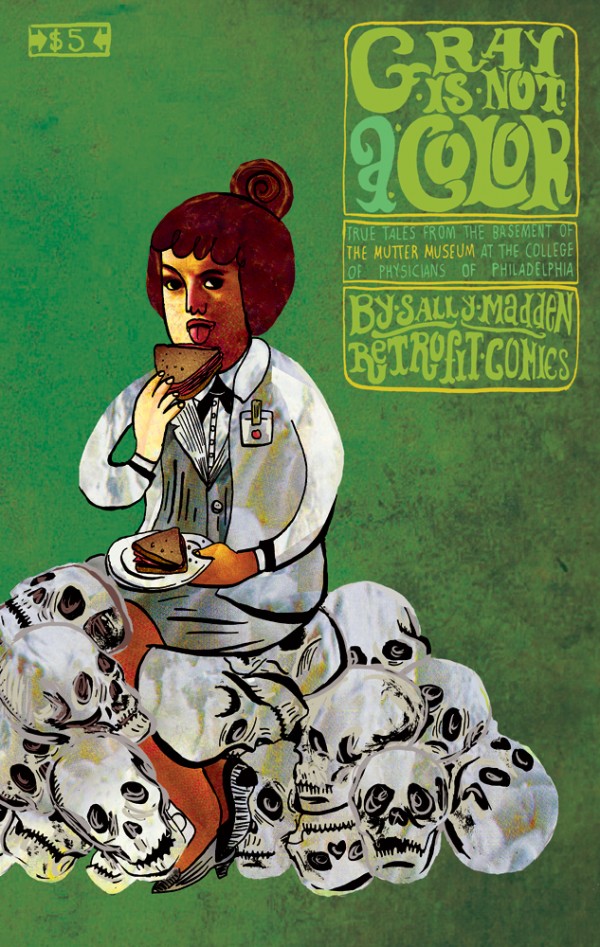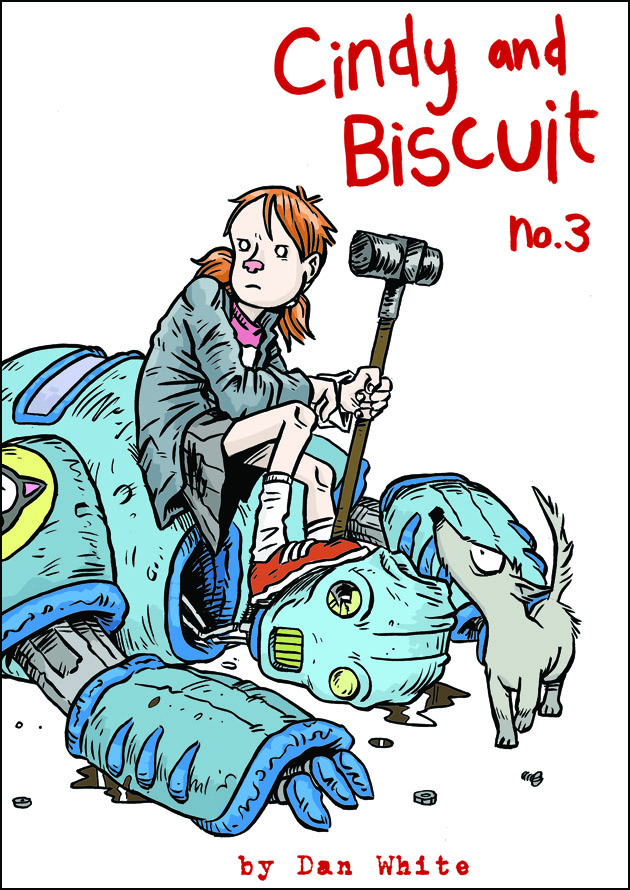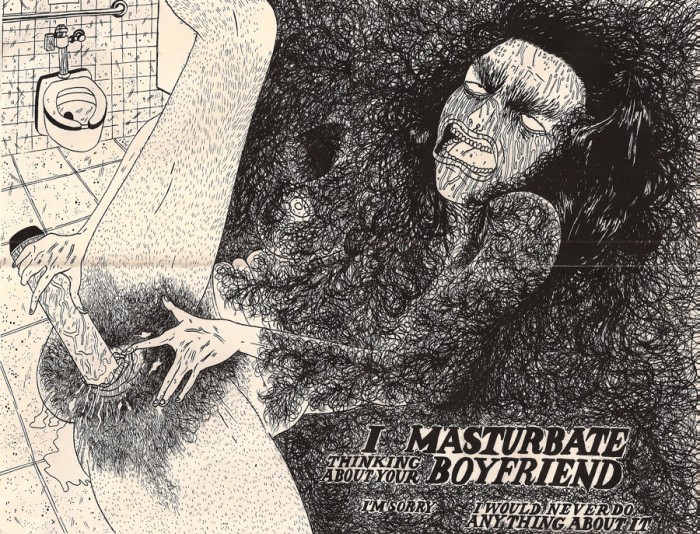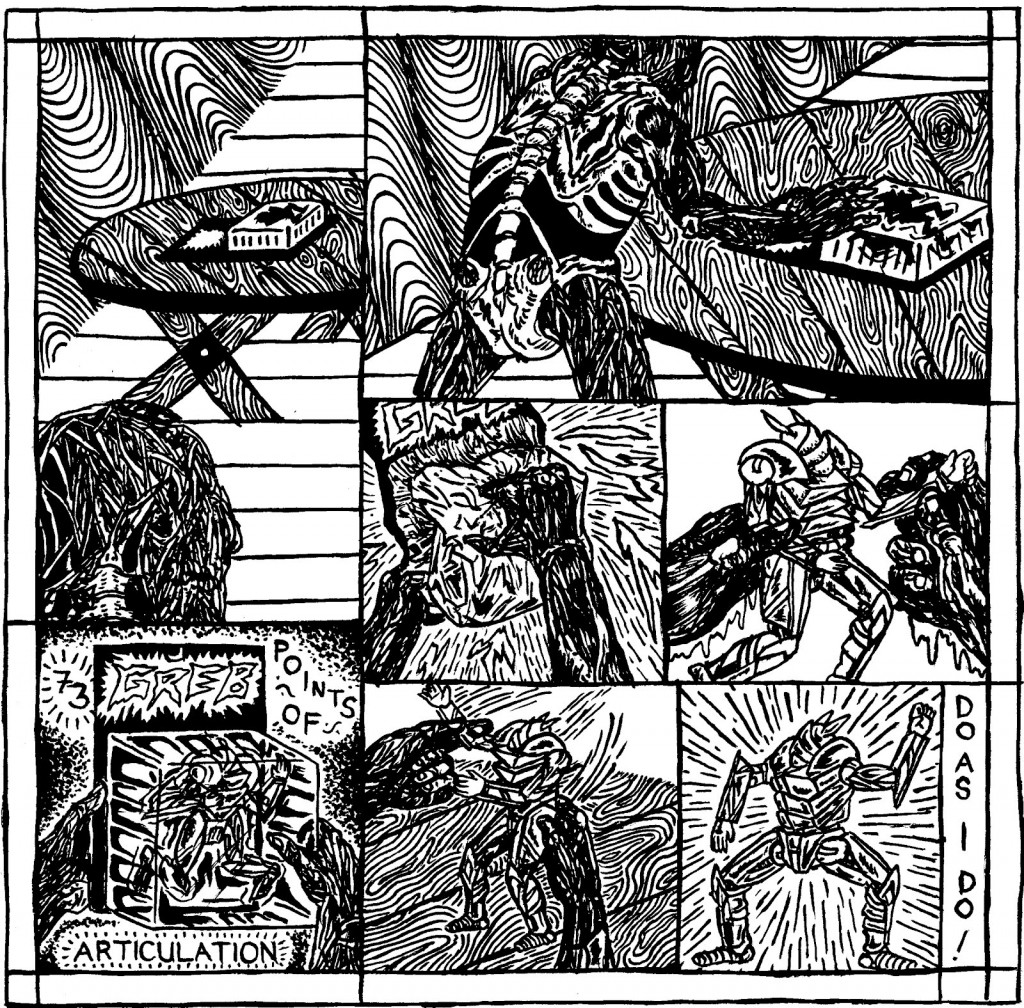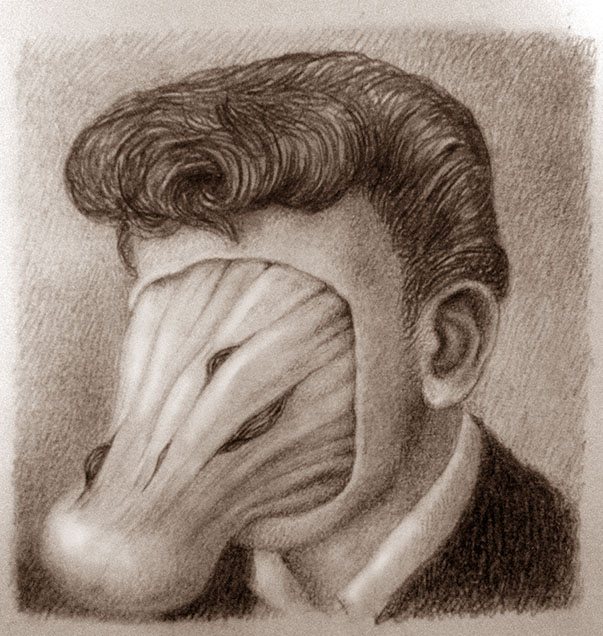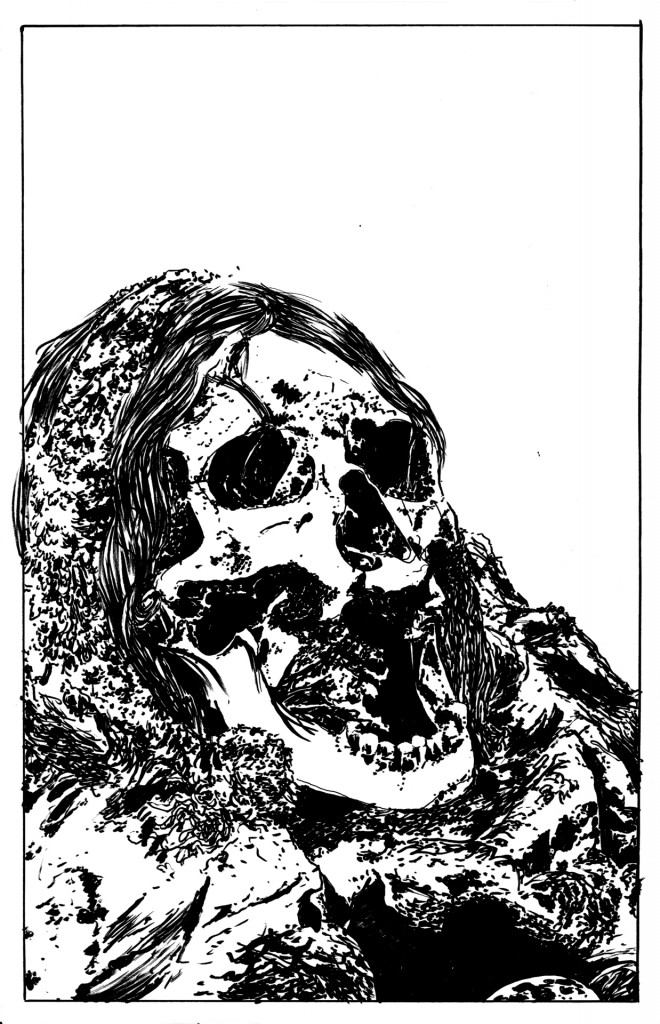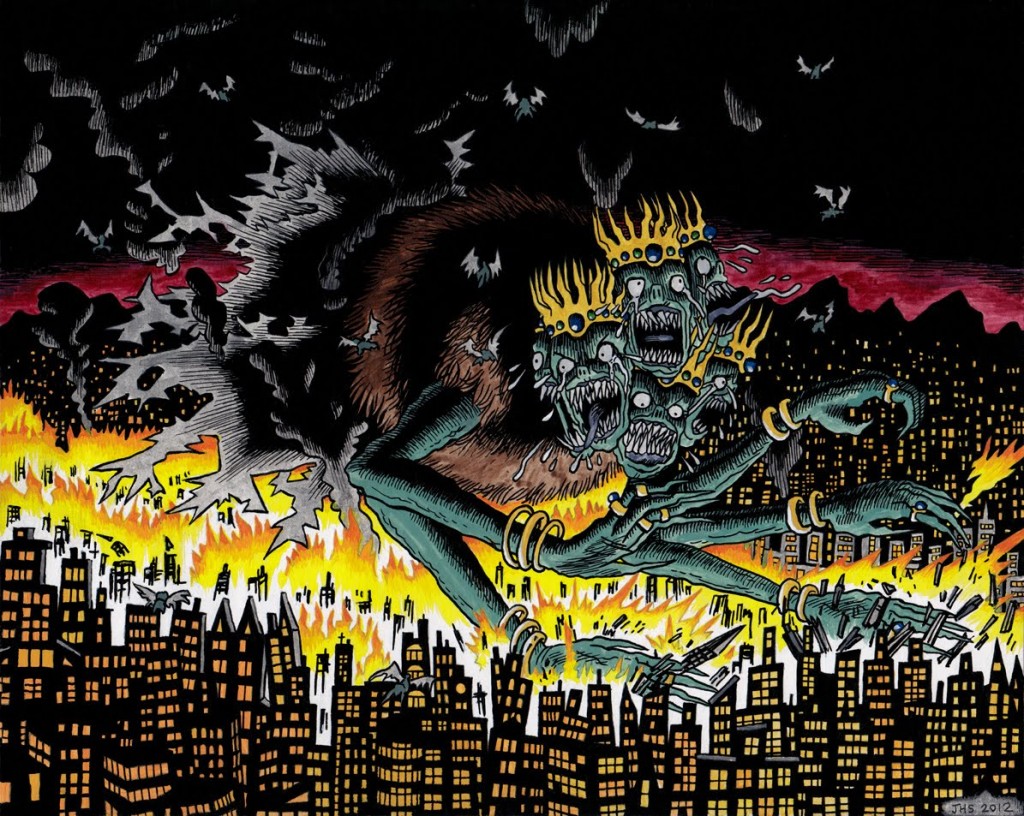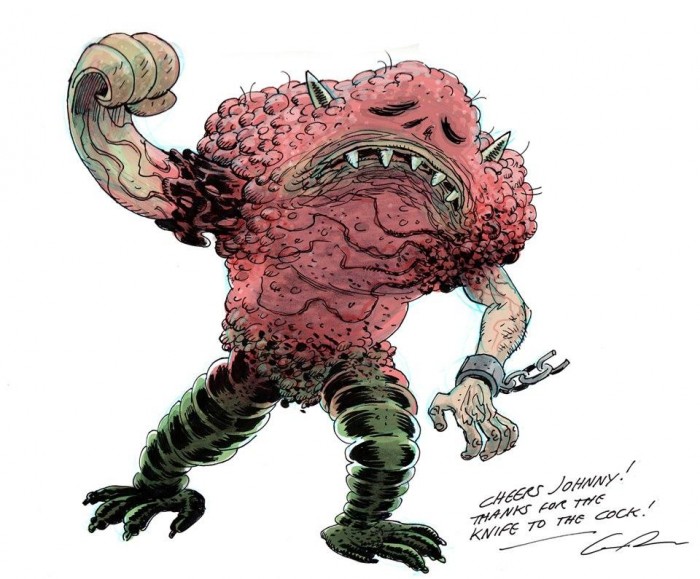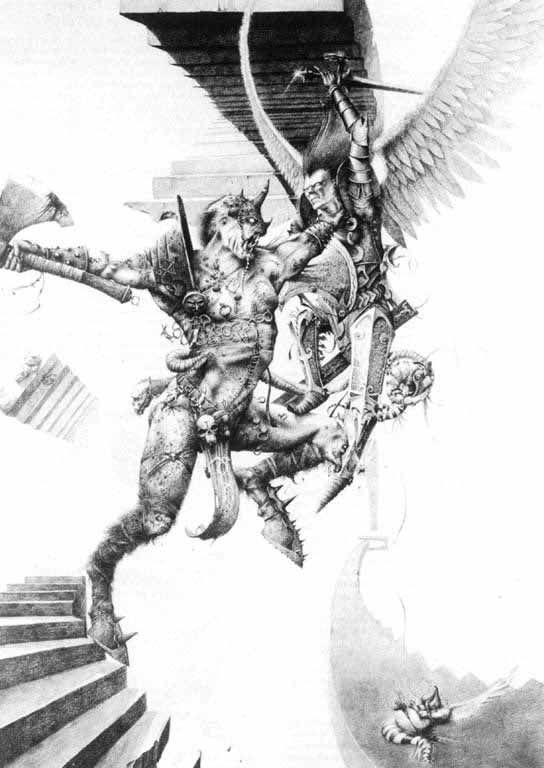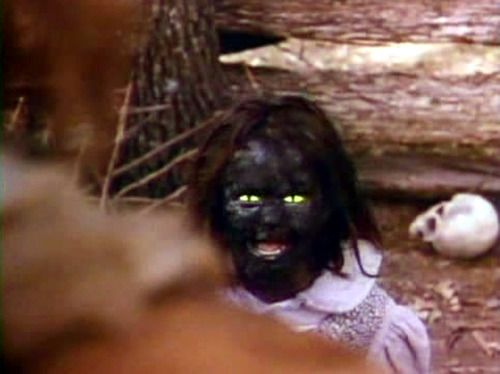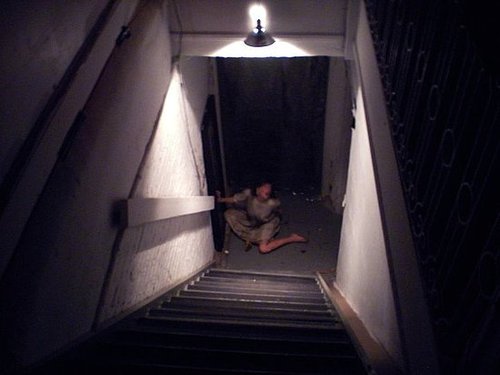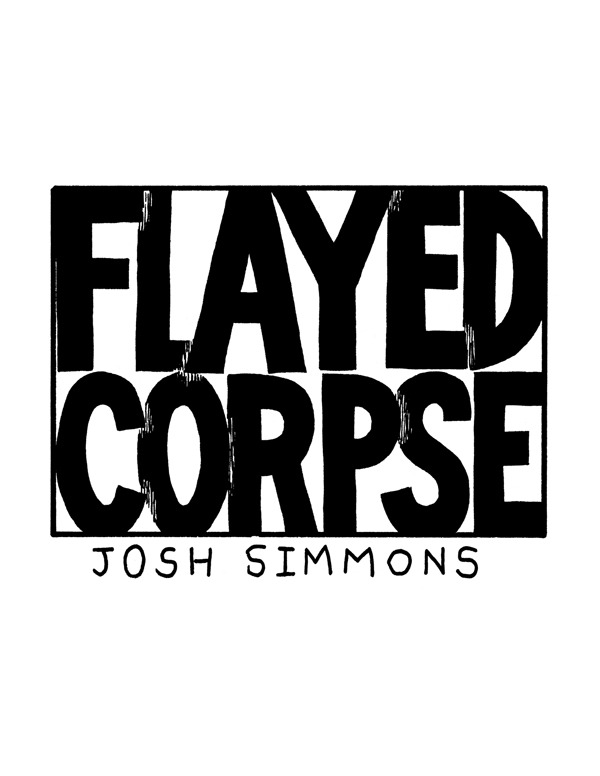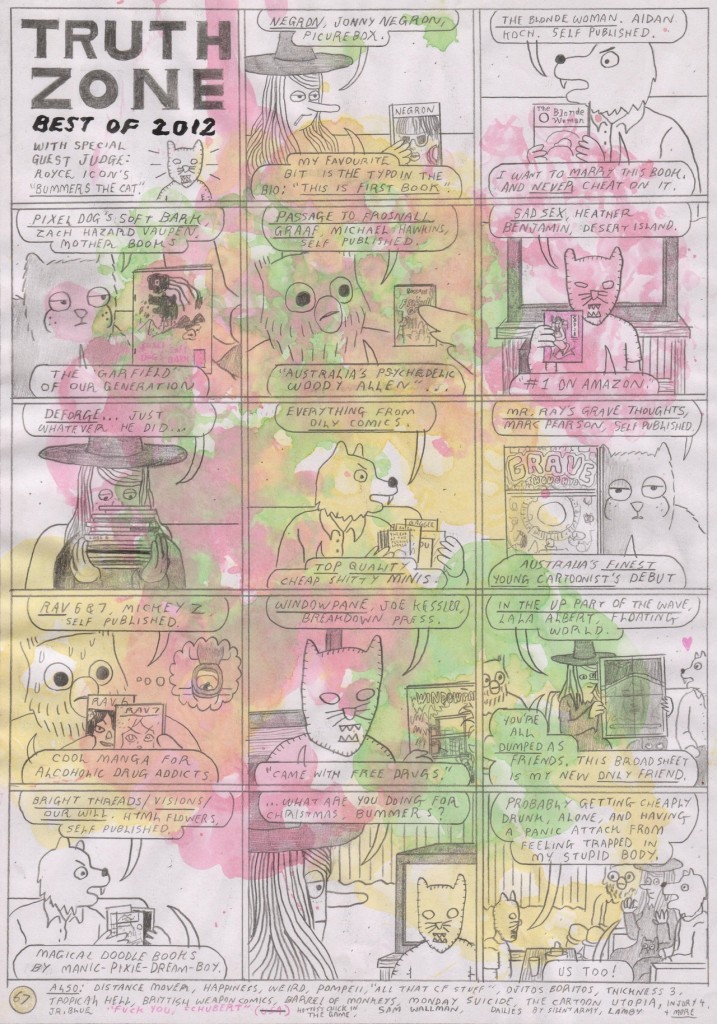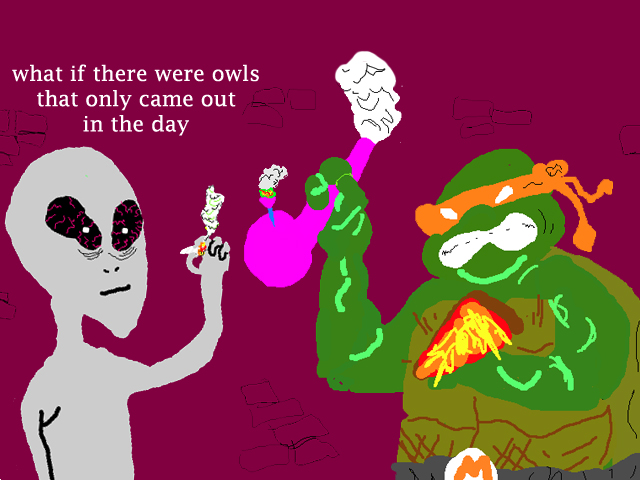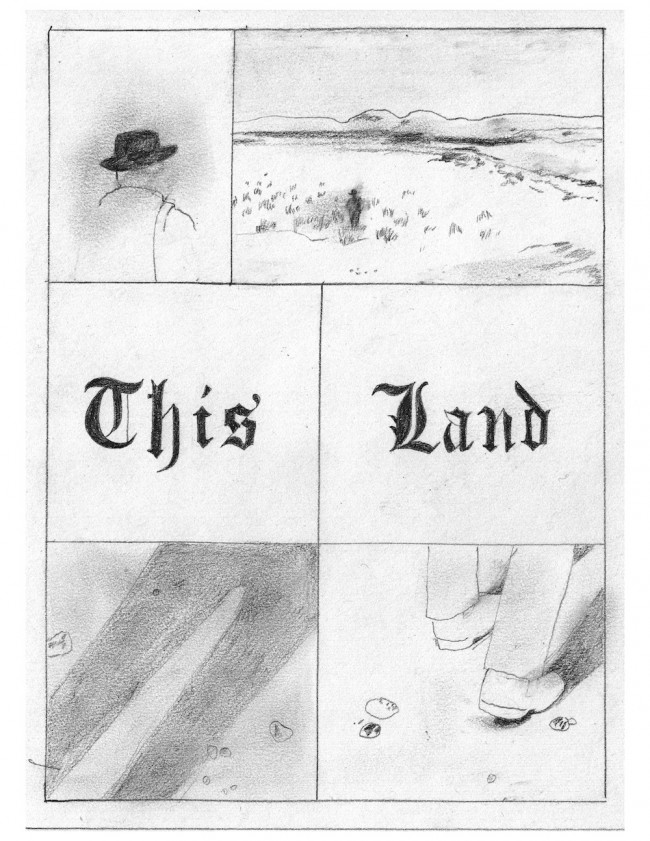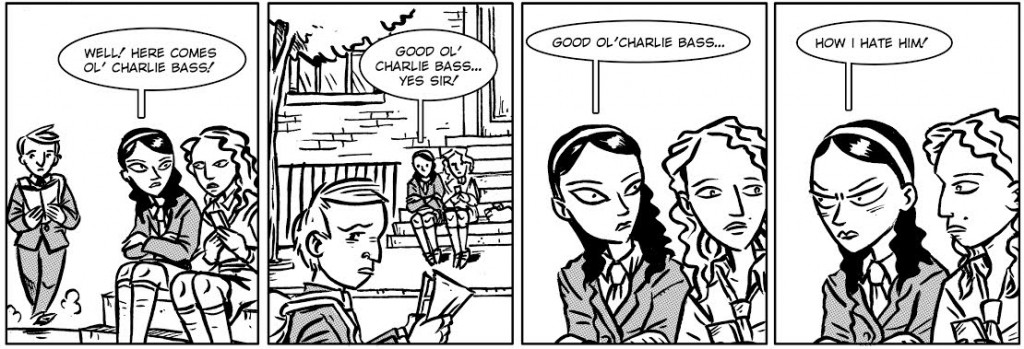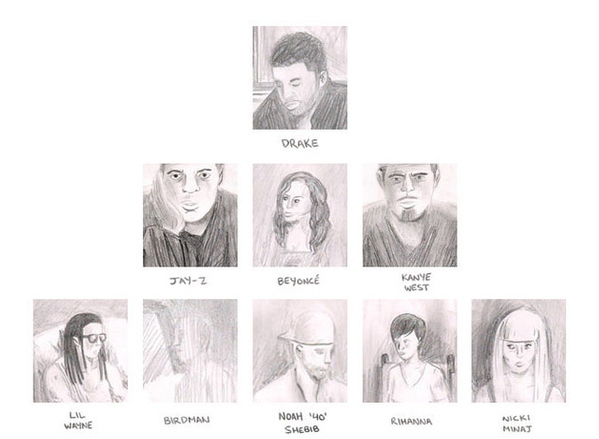My Friend Dahmer
Derf Backderf, writer/artist
Abrams ComicArts, March 2012
224 pages
$17.95
Buy it from Amazon.com
In introductions, afterwords, and interviews alike, Derf Backderf makes it abundantly clear that his sympathy for Jeffrey Dahmer, his old high school acquaintance and serial killer of young men and boys, ends when Dahmer’s murders begin. By coincidence, so does the story he tells in this book, pretty much: Dahmer began killing upon graduation from high school, at which point he also dropped out of touch with Backderf and his circle, thus closing Derf’s window on his darkening world.
But while My Friend Dahmer abhors Dahmer’s crimes, it also does him, and his victims, the courtesy of never saying what they are. No body counts; no grim stories of the homophobic cops who returned a nude, wounded underage boy who’d escaped Dahmer’s clutches to his eventual killer before making jokes to their dispatcher about getting de-loused; no gruesome accounts of body-part altars and DIY trepanation attempts. The endnotes in the backmatter deliver the basic facts, but in the comic itself he consigns his old friend’s crimes to the void, perhaps the most empathetic thing he could possibly do with them.
The story Backderf chooses to tell is one of uncontrollable urges. At one point he describes them in the purple terms of mass-market true-crime paperback back-cover blurbs, as otherizingly and alienatingly as you please: “What spawned this perverse sexual hunger? What deep, fetid part of his psyche gurgled up this miscreant desire, so powerfully voracious it immediately devoured him whole?” But immediately before that he makes the direct connection between Dahmer’s necrophilia and his own irresistible adolescent lust for his female classmates, one of whom he draws walking alluringly down the hall in tight jeans, her spherical asscheeks drawing his attention as inexorably as a local jogger commands Dahmer’s far more lethal lust.
The girl’s body points to the great strength of Backderf’s resolutely unstylish art: Everyone’s a collection of lumps and bulges, molded into shape by his thick, blunt ink line. This isn’t the only prominent ass we see drawn this way, as it turns out: Another belongs to Dahmer’s mom, clenched in unflattering high-waisted mom pants as she seizes uncontrollably due to a morass of psychological, neurological, and pharmaceutical problems. Her trembling, sweat-soaked, jut-jawed body locks into bizarre, almost vogue-like positions, her neck craned upward at a 90 degree angle like a modernist portrait. She’s reduced to her body in these moments. “This,” Backderf writes, “is what Jeff came home to.” Dahmer’s mind rapidly reduces all life to mere bodies, bodies over which he can exert control. In fact, it’s his imitation (unbeknownst to his classmates, who think he’s making fun of someone else) of his mother’s symptoms that makes him a legendary character among his classmates.
The implicit connection Backderf draws between all these things is that Dahmer couldn’t help how he felt about dead men any more than Derf could help how he felt about pretty girls’ rear ends or than his mother could help having fits. What they all could control is how they responded to them, or to anything else. That’s where Backderf’s real anger is directed: at the choice of Dahmer’s parents to abandon their son — first emotionally and then quite literally, leaving him to live by himself in their house as they went their separate ways following an acrimonious divorce — and at the apparent choice of their high-school teachers and administrators to ignore the heroic quantities of alcohol Dahmer was consuming during the school day to self-medicate his urges away. The moment his parents left and school let out, even the minor impediment of negligent adults was removed entirely, so the alcohol was no longer enough, and the last few tethers holding Dahmer to sanity snapped. If some adult had cared enough to wrestle those urges to the ground, Backderf argues, Dahmer’s lonely life would still have been a sad one, but the lives of dozens and dozens of other people would have been far less so. The goal of this book is to lead you to the chasm between the potential and the actual and scream into it. Between the idea and the reality, between the motion and the act, falls the Shadow.

